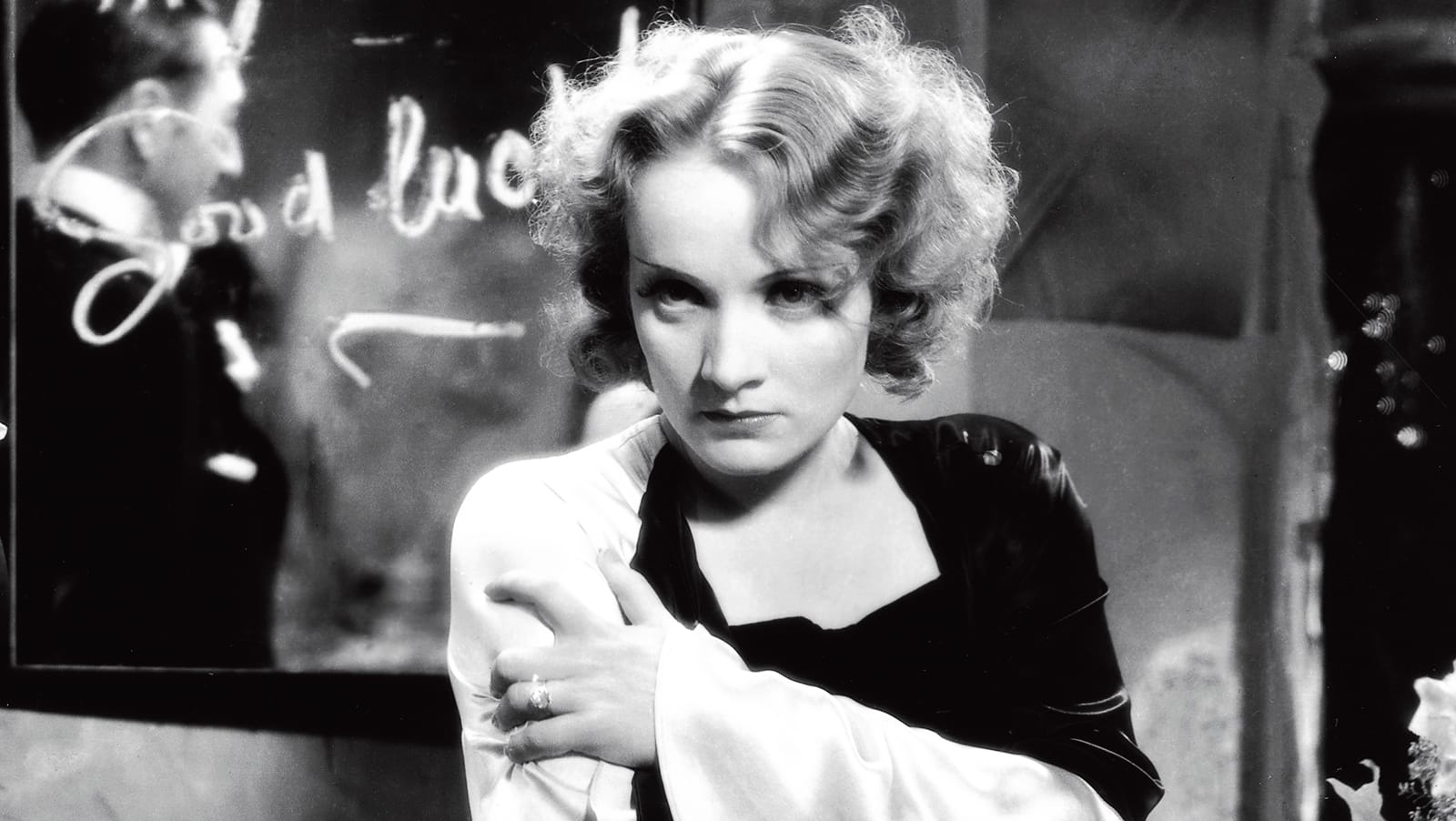Mistress of Ceremonies

The stakes are high. An unknown entertainer newly arrived in a foreign country prepares for her first performance, under pressure to make a hit with a restless, rowdy audience. It is a hot night; the crowd exudes a collective humidity, faces glistening with sweat, fans fluttering in hands. Only the new performer looks cool. Alone in her dressing room, she sings to herself, smiling with self-contained amusement at her image in a hand mirror. Her man’s dress shirt and tie are as white as alpine snows. The nightclub owner comes in, an excitable, buffoonish Italian mopping his face, anxiously hectoring his new headliner. Aloof and calm, she continues her meticulous preparations: dusting off and donning a top hat, straightening her tie, slipping into a tailcoat. She strolls onstage and surveys the jeering audience inscrutably through a scrim of cigarette smoke, from under eyelids dragged down by the weight of knowingness and thick, curling eyelashes. The close-up is killing in its beauty.
Morocco (1930) was the film that introduced Marlene Dietrich to American audiences, since Paramount delayed the U.S. release of the German-made The Blue Angel (also 1930), her earthshaking first film with director Josef von Sternberg, until after her more elegant Hollywood debut had opened to rapturous acclaim. Von Sternberg carefully crafted the story of Amy Jolly, a wandering performer with a murky past, into a proscenium for Dietrich’s own presentation to America. He boldly brings her out in the top hat and tails he had seen her wear at a Berlin party, and shrewdly dramatizes the response of the audience in the movie—initially hostile but quickly seduced, led by a smitten legionnaire played by Gary Cooper—to guide the response of the film’s potentially baffled viewers to this new phenomenon.
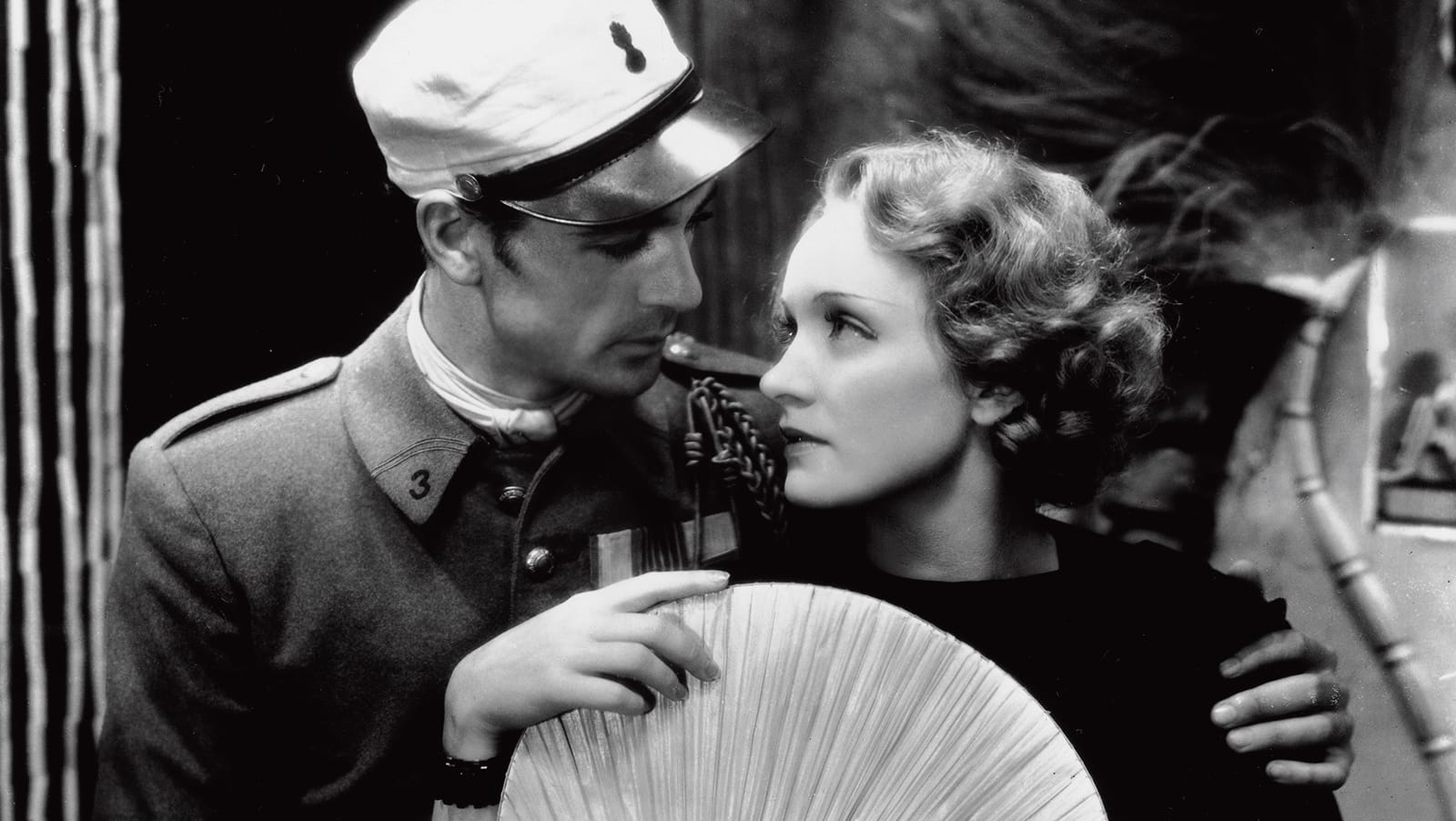
Dietrich’s provocation goes beyond wearing men’s clothes, or even planting a kiss on the lips of a woman in the audience, who gives a shrill, embarrassed laugh and buries her face behind her fan. She assumes other masculine privileges: easy confidence, sexual authority, emotional unavailability. Even more than the casual perfection of her saunter and her offhand gestures, it is her air of not caring that sets her apart. She wears it like a perfume, like a veil, like her own special lighting.
A friend from the Berlin theater world, Hubert “Hubsie” von Meyerinck, described Dietrich’s triumph as mistress of ceremonies in the 1926 stage revue Von Mund zu Mund (From Mouth to Mouth): “It wasn’t actually anything you played or did; it was exactly the ‘nothing’ that later made you famous. Out of this ‘nothing’ born of indifference (or so it seemed) you created a style . . . and not just a style, but your Art.” Von Sternberg himself described his first sight of Dietrich in a 1929 play called Zwei Krawatten (Two Neckties) when he was desperately searching for the female lead for The Blue Angel. What struck him was her “cold disdain” for the farce and her indifference to his presence, followed by her apparent apathy and refusal to ingratiate herself at an audition. He also detected a lustrous vitality beneath this mask of restraint—and she was, in fact, fiercely ambitious—but the pose of not giving a damn, which she made challenging and seductive, was what he wanted. As Lola Lola in The Blue Angel, she gives off heat waves of eroticism and icy chills of heartlessness. Critic Siegfried Kracauer caught this quality in a review—cabled to Dietrich by her husband, Rudi Sieber, during her ocean crossing to America—that describes “an impassivity which incites one to grope for the secret behind her callous egotism and cool insolence.”
Over the course of the six films they made together in Hollywood, von Sternberg took Dietrich out of the smoke and sweat of The Blue Angel’s waterfront dive and put her in ever more exotic and lavish settings—his versions of Morocco, China, Russia, Spain, with a single detour to contemporary America (Blonde Venus). Between angel and devil, he cast her as goddess, empress, adventuress. The amoral, blithely destructive Lola Lola made way for romantic martyrs in their first four American films, then fatal temptresses in the last two. But the impassivity and cool insolence remained throughout and beyond the von Sternberg films, from the nonchalant poise with which Dietrich faces a firing squad in her second American film with him, Dishonored (1931), to her seen-it-all, sibylline detachment in Orson Welles’s Touch of Evil (1958). With these qualities lingers an ambiguity distilled by that dressing-room scene from Morocco: she seems above and beyond caring yet takes infinite care with everything she does. In her work, she was a perfectionist, legendarily tireless and self-disciplined: Welles called her “the good soldier of all time.” Yet in Maximilian Schell’s often confounding 1984 documentary Marlene, she insists she never took her career seriously, and reacts with disdain verging on outrage to the notion of watching her old movies. “Look at myself? Really!” she scoffs, as though she had not toted a full-length, bulb-lit mirror to every movie set so that she could monitor her appearance. “I don’t give a damn about myself.” This stance, maintained through all the outpourings of adulation she graciously accepted—from The Blue Angel’s explosive premiere to her last concerts in the seventies, where she triumphed despite crippling pain from unhealed broken bones—made her enigmatic. She knew everything there is to know about being an object of desire—the “woman one longs for” from the title of one of her last pre–von Sternberg silents. She knew the enslaving power of remaining unfathomable and unattainable and also the degree of self-command, even self-enslavement, that is required to do so.

“Dietrich’s beauty is something you feel she is creating and performing—through makeup, costumes, lighting, expressions, gestures—and this makes it somehow more, rather than less, enthralling.”
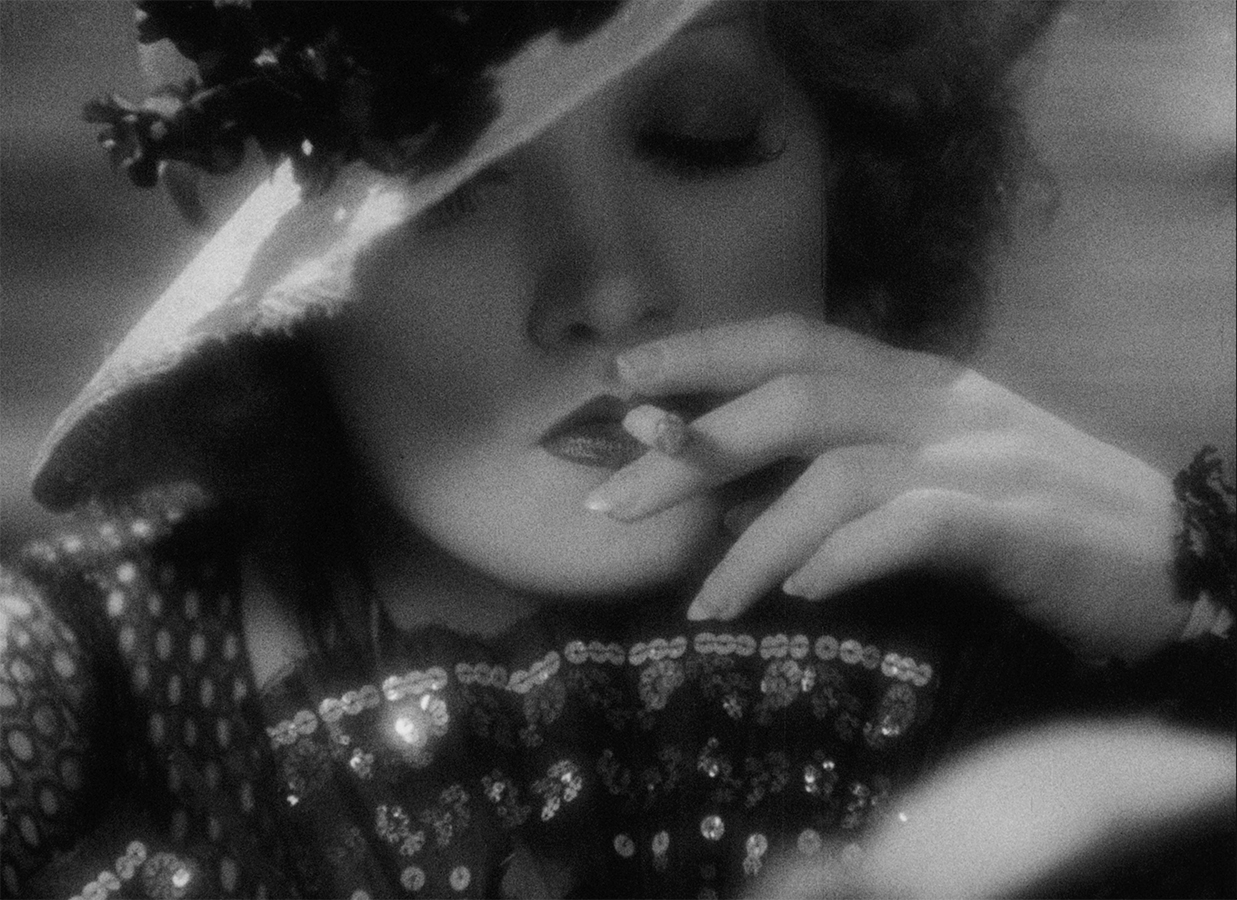

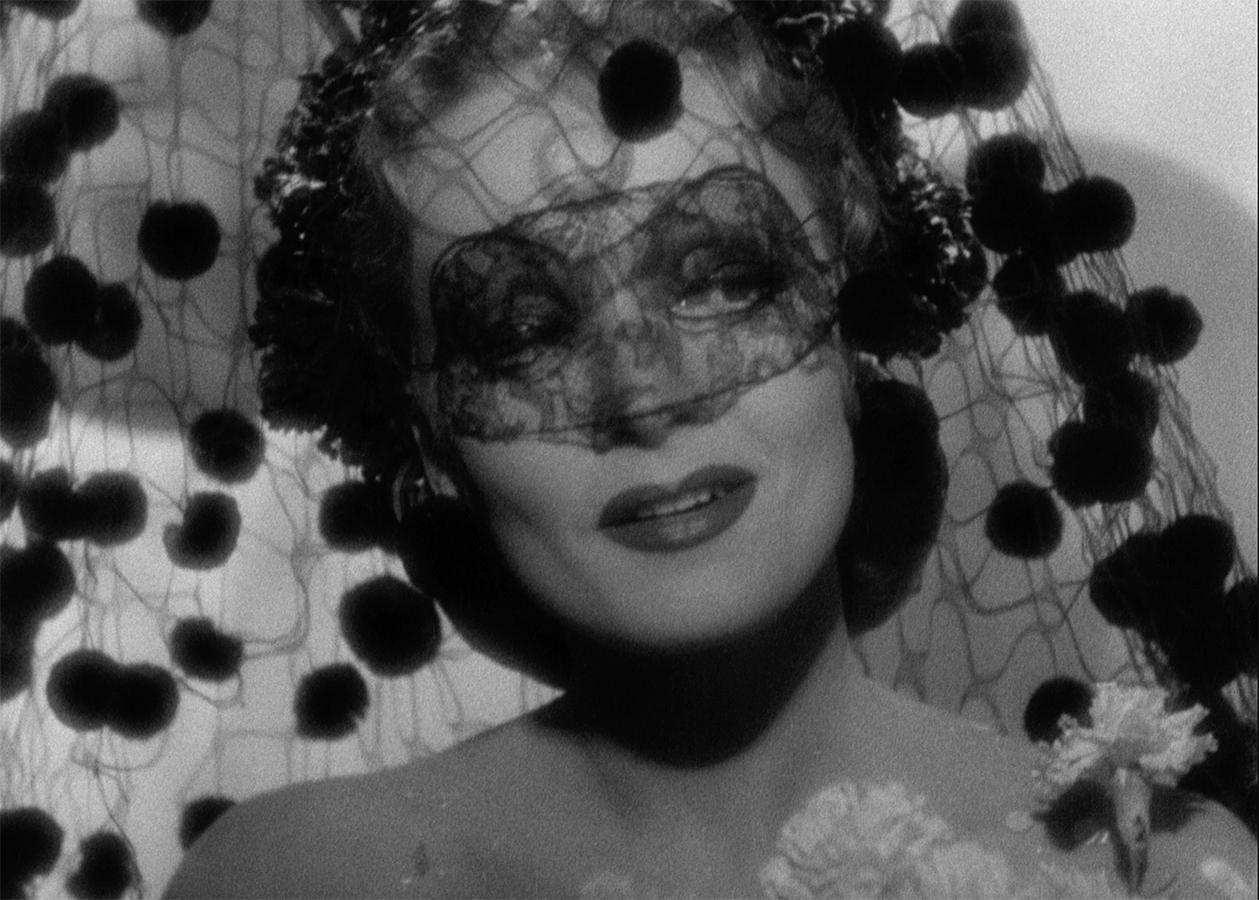
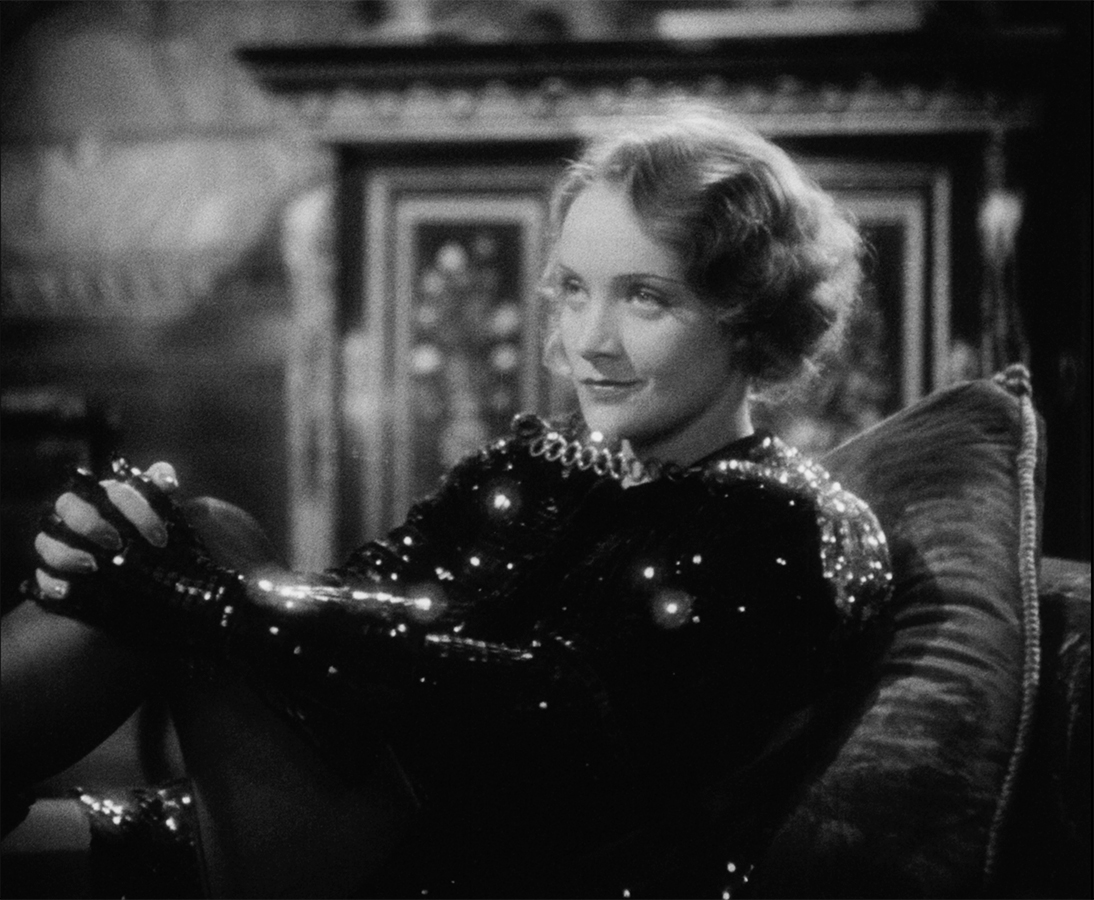
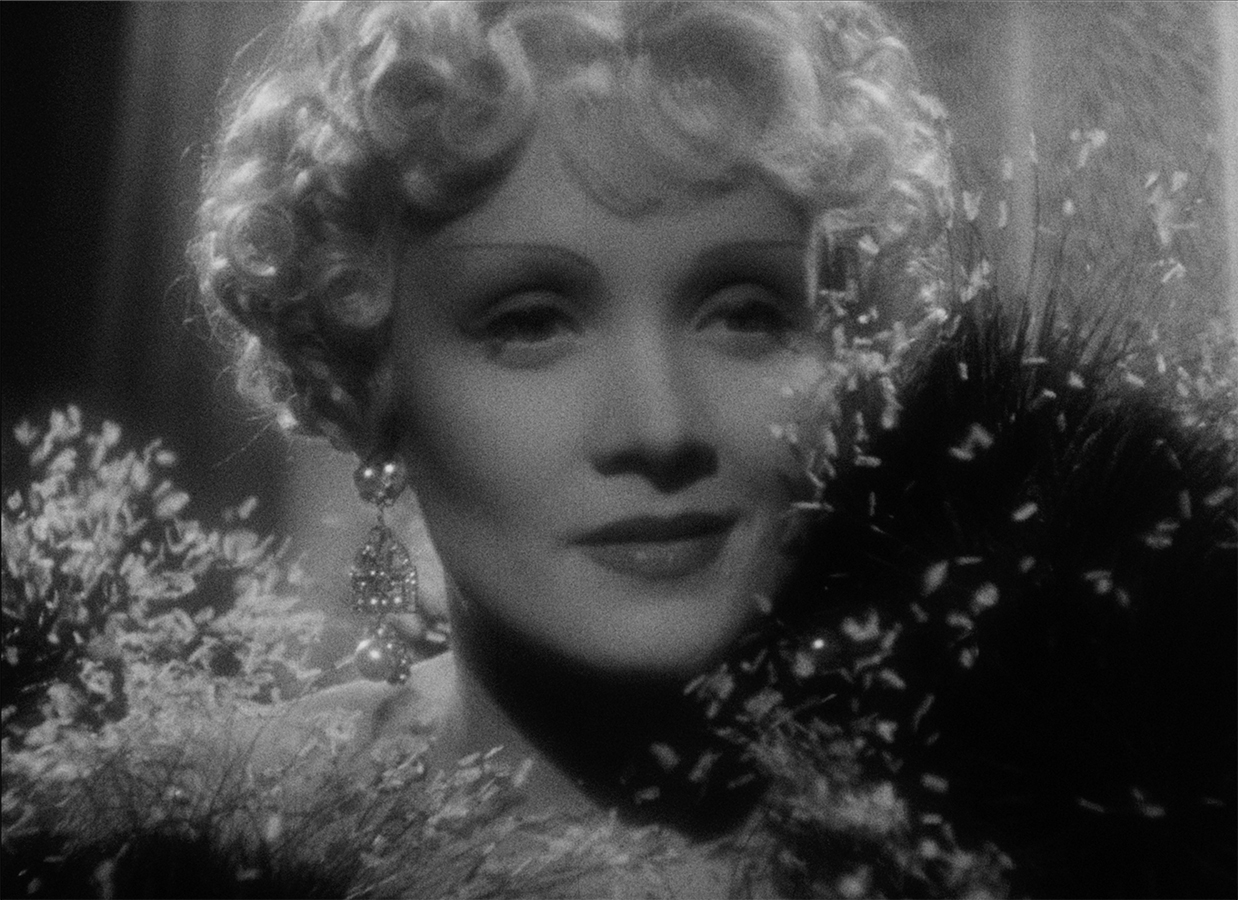
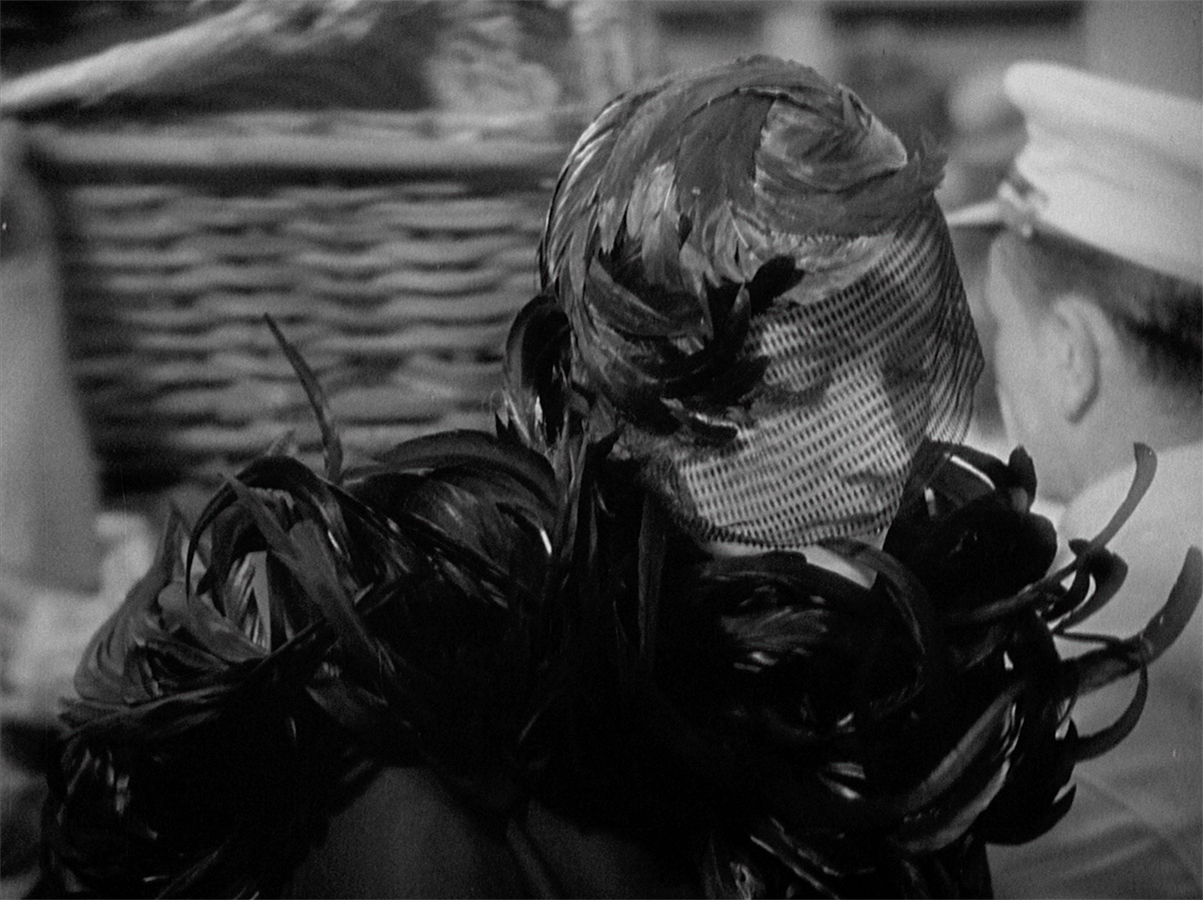

“The notion that she was his creation is one some critics have accepted all too eagerly, despite even von Sternberg’s own admission that ‘I gave her nothing that she did not already have.’”
